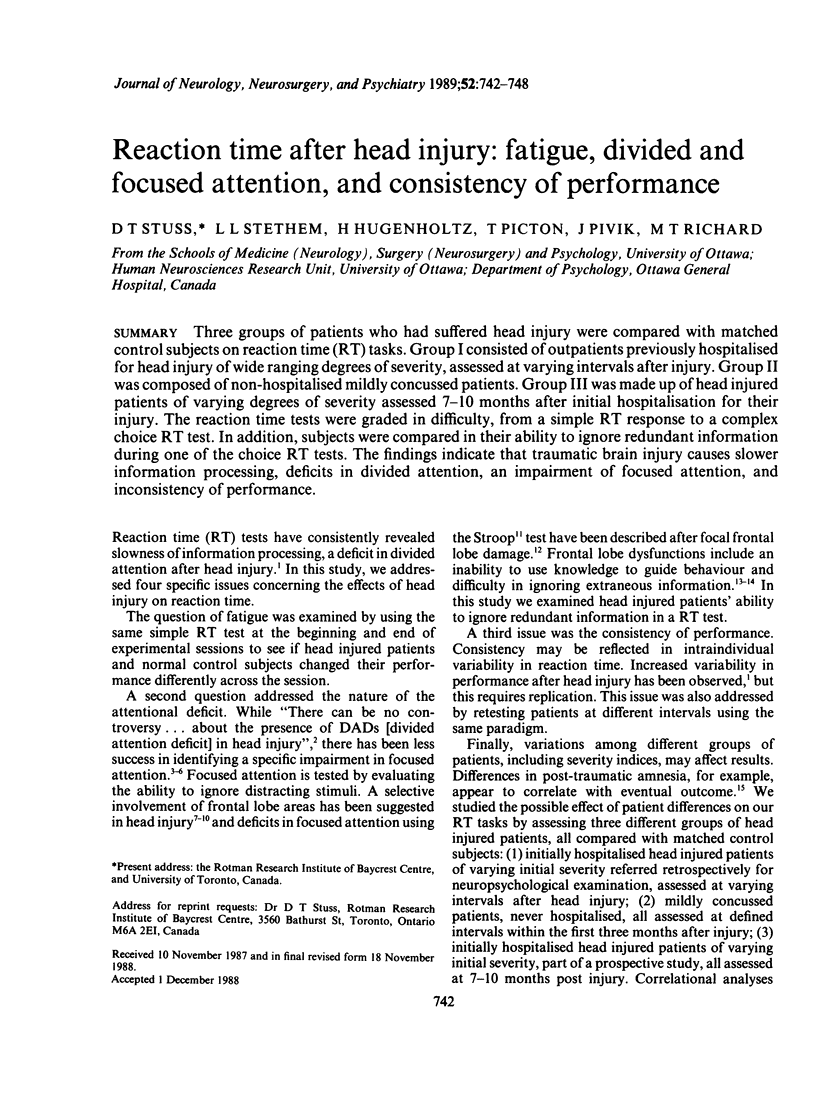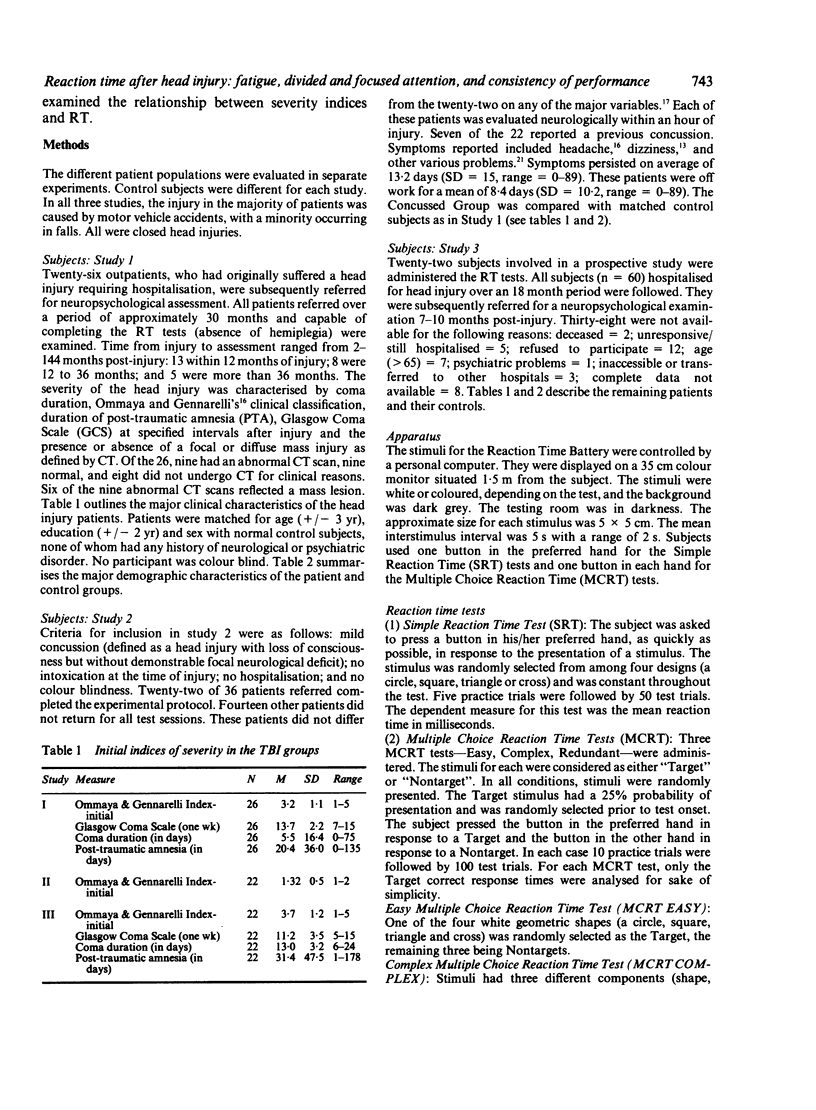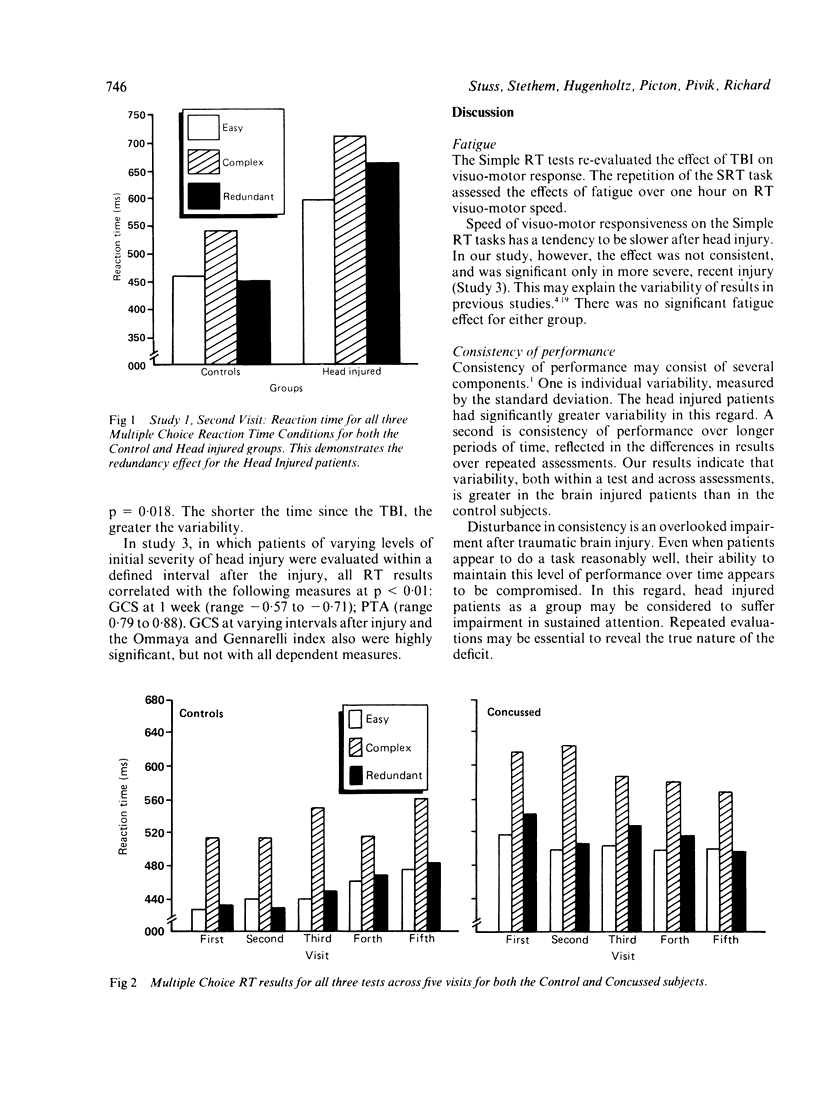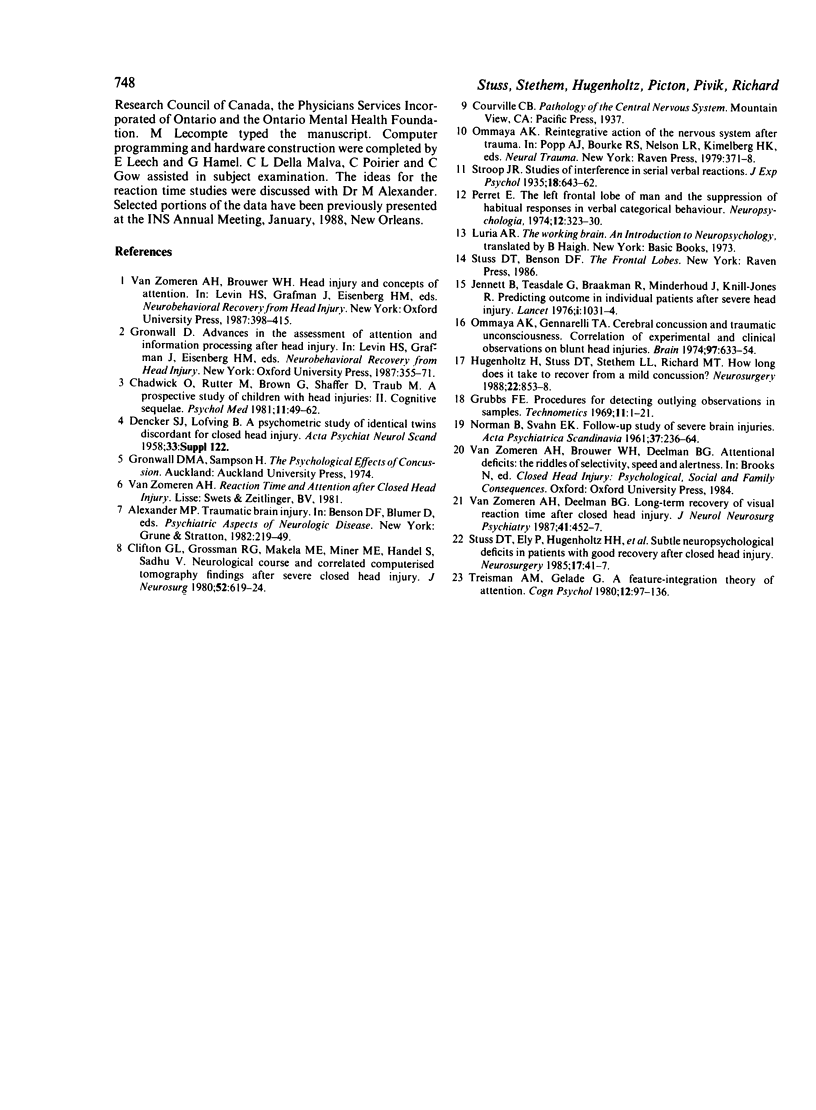Abstract
Three groups of patients who had suffered head injury were compared with matched control subjects on reaction time (RT) tasks. Group I consisted of outpatients previously hospitalised for head injury of wide ranging degrees of severity, assessed at varying intervals after injury. Group II was composed of non-hospitalised mildly concussed patients. Group III was made up of head injured patients of varying degrees of severity assessed 7-10 months after initial hospitalisation for their injury. The reaction time tests were graded in difficulty, from a simple RT response to a complex choice RT test. In addition, subjects were compared in their ability to ignore redundant information during one of the choice RT tests. The findings indicate that traumatic brain injury causes slower information processing, deficits in divided attention, an impairment of focused attention, and inconsistency of performance.
Full text
PDF






Selected References
These references are in PubMed. This may not be the complete list of references from this article.
- Chadwick O., Rutter M., Brown G., Shaffer D., Traub M. U. A prospective study of children with head injuries: II. Cognitive sequelae. Psychol Med. 1981 Feb;11(1):49–61. doi: 10.1017/s0033291700053277. [DOI] [PubMed] [Google Scholar]
- Hugenholtz H., Stuss D. T., Stethem L. L., Richard M. T. How long does it take to recover from a mild concussion? Neurosurgery. 1988 May;22(5):853–858. [PubMed] [Google Scholar]
- Jennett B., Teasdale G., Braakman R., Minderhoud J., Knill-Jones R. Predicting outcome in individual patients after severe head injury. Lancet. 1976 May 15;1(7968):1031–1034. doi: 10.1016/s0140-6736(76)92215-7. [DOI] [PubMed] [Google Scholar]
- NORRMAN B., SVAHN K. A follow-up study of severe brain injuries. Acta Psychiatr Scand. 1961;37:236–264. doi: 10.1111/j.1600-0447.1961.tb07359.x. [DOI] [PubMed] [Google Scholar]
- Ommaya A. K., Gennarelli T. A. Cerebral concussion and traumatic unconsciousness. Correlation of experimental and clinical observations of blunt head injuries. Brain. 1974 Dec;97(4):633–654. doi: 10.1093/brain/97.1.633. [DOI] [PubMed] [Google Scholar]
- Perret E. The left frontal lobe of man and the suppression of habitual responses in verbal categorical behaviour. Neuropsychologia. 1974 Jul;12(3):323–330. doi: 10.1016/0028-3932(74)90047-5. [DOI] [PubMed] [Google Scholar]
- Stuss D. T., Ely P., Hugenholtz H., Richard M. T., LaRochelle S., Poirier C. A., Bell I. Subtle neuropsychological deficits in patients with good recovery after closed head injury. Neurosurgery. 1985 Jul;17(1):41–47. doi: 10.1227/00006123-198507000-00007. [DOI] [PubMed] [Google Scholar]
- Treisman A. M., Gelade G. A feature-integration theory of attention. Cogn Psychol. 1980 Jan;12(1):97–136. doi: 10.1016/0010-0285(80)90005-5. [DOI] [PubMed] [Google Scholar]
- Van Zomeren A. H., Deelman B. G. Long-term recovery of visual reaction time after closed head injury. J Neurol Neurosurg Psychiatry. 1978 May;41(5):452–457. doi: 10.1136/jnnp.41.5.452. [DOI] [PMC free article] [PubMed] [Google Scholar]


